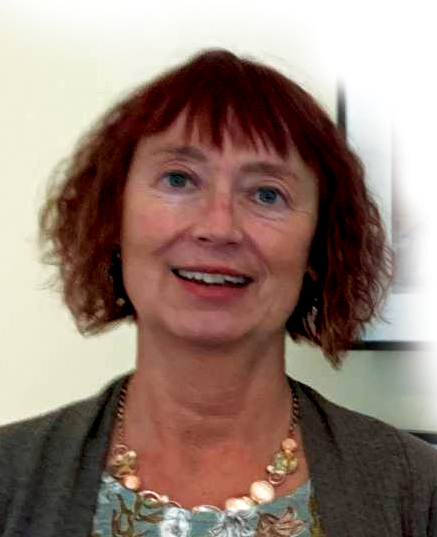The Truth and Reconciliation Call to Action Number 59 encourages church parties to the Indian Residential School Settlement Agreement to develop ongoing education strategies to ensure their congregations learn about their church’s role in colonization, the history and legacy of residential schools, and why apologies to former residential school students, their families, and communities were necessary. Since the fall of 2023, the University of British Columbia Okanagan (UBCO) Kelowna and The Cathedral Church of St Michael & All Angels have partnered in two Knowledge-Sharing Events as first steps toward active reconciliation, where we closely examine our own histories and actively learn how to improve our relationships as descendants impacted by a culture of domination.
During the 2023-2024 academic year, two UBCO Indigenous Studies professors partnered with the Diocese of Kootenay Archives to offer an “experimental” course. Dr. Alanaise Ferguson (Psychologist, holder of Canada Research Chair in Health, Healing and Community Revitalization) and Dr. Evan Habkirk (Historian, consultant to Truth & Reconciliation Commission) guided 44 students as they studied and transcribed (from handwriting!) the Diocese of Kootenay archival documents which were scanned in 2015 and sent to the National Centre for Truth & Reconciliation at the University of Manitoba.
The majority of these documents were Womens’ Auxiliary meeting minutes, covering 42 churches and 35 Women’s Auxiliary groups from 1902-2007. The students presented their community-based archival research in the form of posters documenting their findings about the (dis)connections that have existed between the Anglican church and Canadian Indigenous Residential Schools. These were displayed at a Knowledge Sharing Event on December 5, 2023 at the Cathedral, which was attended by an enthusiastic and attentive crowd.
Even though this course was not renewed for the 2024-25 academic year, the documents have continued to provide research material. Seven students continued with the project as paid transcribers, alongside four Research Assistants, resulting in an additional 761 completed transcriptions. These documents have also fueled three forthcoming publications on Research Methods within Research Projects with Reconciliation Aims; Church Histories; and Church/Indigenous interconnections. Preliminary findings were presented at two academic National Conferences, and three local venues (including the Cathedral.)
On January 18, 2025, a second Knowledge-Sharing Event was held at Kelowna Cathedral.
From the national to the local: What we were told about the National Residential School project
Dr. Evan Habkirk discussed the harmful legacy of the Indian Residential Schools, including the original mandate of the schools, and provided examples of government messaging about indigenous peoples. He used the City of Vernon as a case study of how government policy was used to justify seizure of indigenous lands used for grazing, for a military base, an artillery range, and an airport. He noted that systematic theft of indigenous land, language, and culture have resulted in ongoing indigenous inequities in housing, healthcare, child welfare, and the justice system.
How your archive became active reconciliation and what we have learned.
Dr. Alanaise Ferguson explained active reconciliation as:
- the process of research and education to unlearn preconceptions and inaccurate historical perspectives.
- the promotion of open and honest conversations to comprehend our varied histories and experiences.
- the exploration of ways to build a renewed relationship with Indigenous peoples based on the recognition of rights, respect, and partnership.
Dr. Ferguson pointed out that it is important to sustain active interest in Indian Residential Schools because IRS denialism is on the rise. Training the next generation of researchers provides them with the skills to work with archival materials to provide incontrovertible evidence to counter this movement. Building relationships among the descendants of the IRS removes tools from denialists.
A third Knowledge-Sharing Event is being planned, including guest speakers, perhaps in May or June 2025, by Zoom, which will make the event widely accessible. Participation in these events is strongly encouraged, because our understanding of healing and reconciliation encompasses the need for all of us to address the forces within our social structures and ourselves that perpetuate injustice and discrimination.

